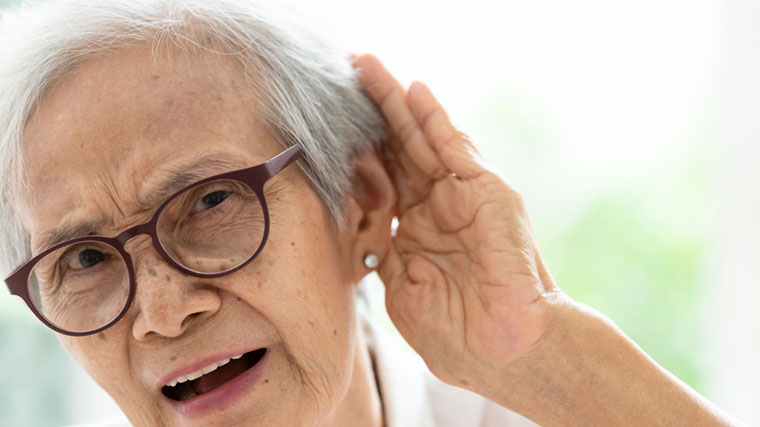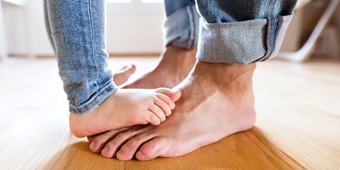Why Hearing Loss And Aging Go Hand-In-Hand

Find Your Perfect Match
Answer a few questions and we'll provide you with a list of primary care providers that best fit your needs.
Do you find yourself turning up the volume on the television? Or asking people to repeat what they’ve just said? As you grow older, you may experience a gradual loss in hearing, called presbycusis. It’s a common condition affecting one in three adults age 65 and older, and nearly half age 75 and older. “The loss occurs over years, not all at once,” says Dr. Chioma Eze. “And it usually affects high frequency hearing.”
Why Does It Happen?
Like other aging processes (e.g. thinning hair), as we get older the nerve fibers and hair cells in our ears degenerate, explains Dr. Eze. It happens so slowly, you may not even notice the difference in your ability to hear. That’s until a family member or spouse points it out!
In some instances, the hearing loss is accompanied by ringing in the ears or vertigo. “These can be the first sign of a problem for some individuals,” says Dr. Eze.
Steps To Diagnosis
There are tests to confirm hearing loss. As you age, the most common reason for hearing loss is damage to the hair cells in your ear. “But first we want to rule out other possible reasons,” explains Dr. Eze. Could your ears be clogged with wax or something else? Is an infection the cause? “If we find no other possible reasons, we’ll likely order a hearing test to confirm you have hearing loss and if so, the extent of the loss.”
The hearing test determines what frequency you can and cannot hear:
- Examples of low-frequency sounds are a rumble of thunder or a tuba.
- Examples of high-frequency sounds are a bird chirping or a whistle.
The test also determines the loudness or intensity of sounds you can and cannot hear:
- Examples of soft sounds are a clock ticking, a person whispering, and leaves rustling.
- Examples of loud sounds are a lawnmower or a car horn.
Treatment Options
“If the test confirms a loss of hearing, and if you feel as though the loss is affecting your quality of life, we’ll recommend hearing aids,” says Dr. Eze. “Hearing aids amplify sounds. They are the first go-to,” she adds. If you’ve tried hearing aids in the past and they didn’t work for you, Dr. Eze encourages you to try again. “Newer, smaller, and less obvious hearing aids are being developed every day.”
If you’re unable to tolerate hearing aids, cochlear implants may work for you, says Dr. Eze. The implant is an electronic device which bypasses the damaged hair cells and sends sounds directly to your auditory nerve. Part of it is placed inside your inner ear, and part of the implant is worn on the outside of your head. The procedure is performed by an ear, nose, and throat (ENT) surgeon.
Cochlear implants don’t work for everyone. Prior to surgery your audiologist will confirm that the implant is right for you.
“There are also other assistive listening devices that could help,” says Dr. Eze. “And for some, rehabilitation, called aural rehabilitation, can be helpful.”
Regardless of whether you use a device to improve your hearing, a lipreading class may also be helpful. The class can teach you how to live with reduced hearing by paying attention to people's gestures, facial expressions, posture, and tone of voice.
Although primary care physicians don’t routinely screen for hearing loss, if you are concerned, be sure to tell your health care provider. It can be confirmed with testing, and then treatment can begin.
Find Your Perfect Match
Answer a few questions and we'll provide you with a list of primary care providers that best fit your needs.
Source: National Institutes of Health; American Speech-Language Hearing Association; Chioma Eze, MD, Centerville Family Medicine




